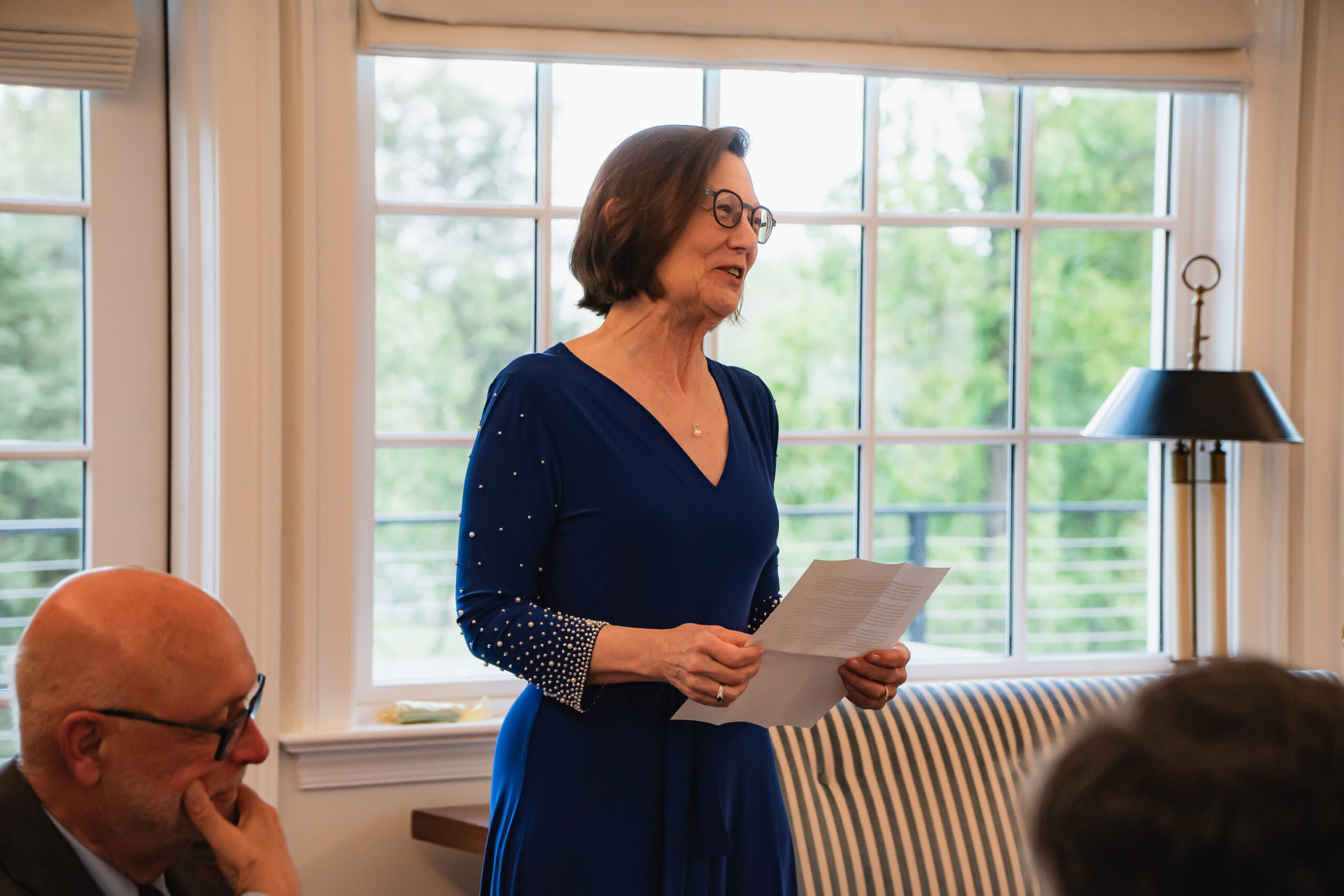
The Ministry of Mitzi Budde
Mitzi Budde, D.Min, Head Librarian and the Arthur Carl Lichtenberger Chair for Theological Research, retires after 33 years. The Rev. A. Katherine Grieb, Ph.D., ’83, reflects on the profound impact she has had on VTS.
Together we make The Episcopal Church stronger

By the Rev. A. Katherine Grieb, Ph.D., Director of the Center for Anglican Communion Studies at Virginia Theological Seminary
From time to time, it is useful to reflect on our projects and on our purpose: what we are doing and why we are doing it. I’ve been asked to write about the recent work of the Center for Anglican Communion Studies (CACS) at the Virginia Theological Seminary (VTS) and to share some theological reflections about why I think it is important. I begin with some theological reflections before summarizing some of our present work and future goals.
The language of vision and seeing, as well as blindness and not seeing is so common in our speech that it is in danger of becoming trite, a dead metaphor that should be shelved for a while. But one of the reasons it is so popular is that the Bible says a great deal about vision and seeing, and about blindness and not seeing, so perhaps it should not be retired quite yet. Let us look at a few examples before zeroing in on the one in my title, which is taken from Habakkuk. I should take a moment to say that I am not speaking about people whose vision is impaired physically: this paper is about moral vision and moral blindness. (See Richard B. Hays, The Moral Vision of the New Testament, 1996)
The King James Version of Proverbs 29:18 says: “Where there is no vision, the people perish,” which was probably not meant as a proof text for why every parish should draft a vision statement, although it has been used that way and that may be a good idea anyway. Proverbs is actually talking about prophecy, about a prophetic vision that guides the people, and without it, the people run wild: they are “like sheep without a shepherd,” to use another biblical phrase.

When Moses, the greatest of the prophets of Israel, complains about his workload in Numbers 11, God tells him to share it with 70 elders upon whom God will pour the Holy Spirit. They are duly assembled, they receive the outpouring of God’s Spirit, and they begin to prophesy. Two others (Eldad and Medad) were also chosen to be among the 70, but they did not make it to the tent of meeting. That was not a problem for God: they received the Spirit anyway and began to prophesy while they were still in the camp. When Joshua said in alarm: “My lord Moses, stop them,” Moses replied: “Would that all the Lord’s people were prophets and that the Lord would put his Spirit on all of them!” (Numbers 11:28-29)
Likewise, the prophet Joel describes the great gift that God will give to the people in the days to come. He describes God’s promise, saying: “Then afterward, I will pour out my spirit on all flesh; your sons and your daughters shall prophesy, your old men shall dream dreams, and your young men shall see visions. Even on the male and female slaves, in those days, I will pour out my Spirit.” (Joel 2:28-29)
Fast forward to the day of Pentecost, 50 days after the resurrection of Jesus of Nazareth, when from heaven came a sound like the rush of a violent wind which filled the whole house where the disciples were sitting. Tongues of fire rested on each of their heads, as they were filled with the Holy Spirit. This sound caused people to gather in the street outside. They were amazed to hear the disciples speaking about God’s deeds of power, each in their own language. When some sneered and said: “Oh, they’ve just been drinking new wine,” it was Peter who pointed out that people do not usually drink wine at 9:00 in the morning. This, he said, is what was promised by God and predicted by the prophet Joel. Then he quoted the language we have just seen from Joel. (Acts 2:17-18)
That seeing and vision are tied to the gift of the Spirit is confirmed for us in Jesus’ own vision statement in Luke 4:18-19: “The Spirit of the Lord is upon me, because he has anointed me to bring good news to the poor. He has sent me to proclaim release to the captives and recovery of sight to the blind, to let the oppressed go free, to proclaim the year of the Lord’s favor.”
All that by way of background as we now turn to Habakkuk, a prophet for our own time. His words could have been written this morning: “O Lord, how long shall I cry for help, and you will not listen? Or cry to you ‘Violence!’ and you will not save? Why do you make me see wrongdoing and look at trouble? Destruction and violence are before me; strife and contention arise. So, the law becomes slack, and justice never prevails.” (Habakkuk 1:2-4a) What jumps out at me from this passage is that the prophet complains that God makes him see; God makes him look at trouble.

The language about sight continues as the prophet insists: “I will stand at my watch post, and station myself on the rampart. I will keep watch to see what he will say to me, and what he will answer concerning my complaint.” The prophet does not have to wait long to hear God’s response: the very next verse says: “Then the Lord answered me and said: ‘Write the vision; make it plain on tablets, so that a runner may read it. For there is still a vision for the appointed time; it speaks of the end and does not lie. If it seems to tarry, wait for it; it will surely come, it will not delay…. The righteous live by their faithfulness.” (Habakkuk 2:2-4)
God tells the prophet to write the vision – the vision of God’s justice and equity, the vision of an end to unjust structures of society; the vision of the rule of law, the end of blatant wrongdoing and legal chaos; the vision of peace and reconciliation, the end of violence and strife. Today we might add: the vision of generous listening and careful speech, of respectful conversation that leads to deeper understanding of our differences, the vision of an end to deliberate distortion, deception, polarizing rhetoric, fake news, and false facts.
God tells the prophet to write the vision in letters so large that someone running past it can still read it. In today’s language, the prophet is supposed to advertise God’s vision of how the world is supposed to be on a huge billboard by the side of every major highway, so that even cars going 60 miles an hour cannot miss seeing it. The prophet is being enlisted to engage God’s project of making us see wrongdoing, making us look at trouble.
This part is critical, because there is something in the human psyche that does not want to see. We tend to turn away from looking at the things that, if we looked at them, we would know we needed to change them. I have been reading a book by Margaret Heffernan recently. It is called Willful Blindness: Why We Ignore the Obvious at our Peril (2011). Willful blindness is a legal principle: I am responsible if I could have known, or should have known, something that instead I strove not to see. Heffernan wrote the book when she realized that many of the greatest crimes are not committed in the dark, where no one can see them, but in full view of hundreds or thousands of people who simply chose not to look and not to question. There is a universal reluctance to confront uncomfortable facts. Moreover, almost all of us are to some degree conflict aversive: we want to fit in; we want to be liked.
One of the earliest sociological studies of crowd psychology was Scottish journalist Charles Mackay’s Extraordinary Popular Delusions and the Madness of Crowds, a three-volume work published in 1841. Mackay wrote (in a sensational style) about “national delusions,” “peculiar follies,” and “philosophical delusions” debunking alchemy, fortune-telling, crusades, dueling, popular admiration of great thieves, and economic bubbles, like the South Sea Bubble of his own day. Apparently contemporary economists still appreciate the three chapters on economic bubbles, even if the rest of the book is somewhat dated. Lately I’ve been wondering what Mackay would say if he were writing about our culture and our tendencies towards willful blindness to outrageous behavior.
Stanley Hauerwas has described the Church as a community of people who learn how to tell the truth about themselves and the world around us – the truth as we see it, of course, none of us has the perspective of God (a God’s eye view). We can do this when others cannot because we are accustomed to the idea of confessing our sinfulness, repenting, reforming, and beginning anew in a better way. We are also a community accustomed to talking about difficult things that really matter; a community that agrees to disagree in love when it cannot agree, and a community that is willing to hold one another accountable. We know that we need one another to be a moral community. We cannot do it alone. The cultural forces are too strong: they will win every time – unless we can continually remind ourselves what we believe and the importance of witnessing to what we believe by our words and actions.
So, I ask myself, and I am asking you to help me figure out, what the Center for Anglican Communion Studies should be writing right now on our billboard, in letters so large that even people who really do not want to see what is happening all around us are forced to see it, look at it carefully, and deal with it.
My first question is: What issues are our top priorities about which to subvert the deliberate moral blindness that keeps us from acting? The second is like unto it: how can we frame our witness so that it can be heard? How can we speak in a way that is both prophetic (grounded in God’s truthfulness) and inviting (that makes people want to join with us) as we face into difficult things we need to do for the good of our planet, the stability of our own social order, the welfare of the nations of the world, and especially peace and justice for the people who are suffering most from the deliberate blindness we tolerate in ourselves and others?
I will not presume to speak for other parts of the Anglican Communion, but here is a short list we might make for The Episcopal Church (TEC). Others can listen in and assess their own contexts. Many of these topics are already being noticed, discussed, and targeted for change: for example, our unjust sentencing and prison system. Out of sight, out of mind. We incarcerate a higher percentage of our population than any other nation in the world and those whom we imprison are disproportionately people of color. Eberhard Busch describes one theologian’s response to our prison system around 1960 and it has not improved much since then: “On his first visit to the United States, [Karl] Barth said he had asked to visit one of our prisons, as he regularly does in his home city of Basel. What he saw here, he said, ‘was a sight out of Dante’s hell … Human beings who had been sentenced, and some not yet sentenced, were kept not in cells,’ he said, ‘but in cages – too small for two persons, behind bars, utterly without privacy.’ He declined to name the prison but said it was a major one… ‘Why are the churches silent?’ he asked. ‘The churches, all of them, should be crying out against such things’.” (Eberhard Busch (ed.) Barth in Conversation vol 1 1959-1962, p. 297.)
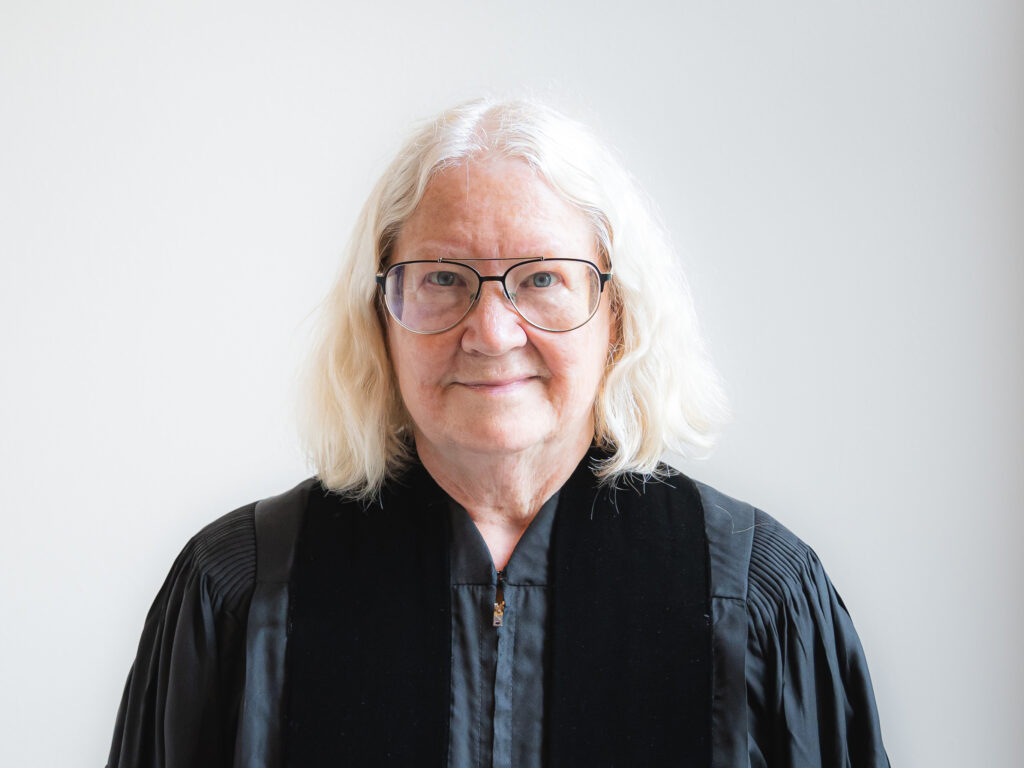
The Rev. A. Katherine Grieb, Ph.D., Director of the Center for Anglican Communion Studies at Virginia Theological Seminary.
Related to that set of injustices is the question of genuine formal apologies and substantial reparations for racist political and economic policies and laws that have effectively prevented wealth accumulation and equal opportunity for multiple generations of African Americans, First Nation peoples, and Spanish-speaking people. To no one’s surprise, they are the same groups that populate our prisons.
Not only must we repent of past sins; we also need to think about present injustices to humans, other animals, and ecological habitats, in our treatment of the earth; and even future injustices, by which I mean the heritage we are leaving to “the children yet unborn” through the decisions we are making and failing to make about healing our environment. Almost every day, we hear something about drastically changing humanly caused weather patterns and the harm they are doing, especially to the poorest among us. Stronger hurricanes, worse flooding, more tornadoes, glaciers melting more quickly, coastlines shrinking: none of this is news, but we seem to be getting used to it. After a while, we stop seeing the warning signs.
Is it really any wonder that teenagers like Greta Thunberg are helping to lead the movement to correct our vision on matters of climate change and global warming? They will be stuck with the mess of an earth that we are not tilling and keeping. At the United Nations Climate Action Summit in September 2019, she was not one of the meek who will inherit the earth. She said: “You have stolen my dreams and my childhood with your empty words and yet I’m one of the lucky ones. People are suffering. People are dying. Entire ecosystems are collapsing. We are in the beginning of a mass extinction and all you can talk about is money and fairytales of eternal economic growth. How dare you!”
I know one of the things I do not want to be asked about on Judgement Day is the mountains of trash our nation generates, and how we pay the less developed nations of the world to take our trash rather than dealing with the problem ourselves. We could cut the amount of trash we produce into a fraction of what it is now if we had the will to do it. I have actually known someone who bore witness to that possibility. This woman, who was a parishioner at Trinity Episcopal Church in Portland, Maine, was able to get to the point of generating no trash at all: she not only recycled, she also bought nothing in plastic containers or plastic wrap, she repaired things that were broken instead of throwing them out, and she limited her spending to things she actually needed. In my book, she is both a hero and a saint.

Another problem we could fix if we had the moral vision and will to do it is the incredible number of military weapons in the hands of civilians, many of whom have no business owning them. Talk about things our society seems determined not to see! In 2023, there were 41 mass killings (defined as episodes where four or more people died, not including the perpetrators, who often commit suicide). Since 2006, guns have been used in about 24 mass killings annually, killing about 2,400 people in all. These have occurred in schools, stores, and sacred places, as well as outdoors. (Washington Post data updated as of November 10, 2023). Every mass shooting provokes a new group of people who previously did not own a gun to buy weapons for self-protection. These guns in the home are often the cause of additional tragic deaths when they fall into the hands of children, people struggling with mental illness, alcohol or drug abuse, or those unable to control their anger and prone to violence.
Another important topic, not only for TEC, but for all parts of the Anglican Communion, is the plight of refugees. Huge migrations of people are happening worldwide as the nations of the world are struggling to craft just immigration policies. These policies are often in need of re-vision, as we saw in 2022 when Governor Ron DeSantis signed a budget that appropriated $12 million to set up a program transporting unauthorized migrants out of Florida. Three months later, the funds were being used to round up asylum seekers from Venezuela and to fly them to Massachusetts on private planes. I was proud to be a member of TEC when St. Andrew’s Episcopal Church in Edgartown on Martha’s Vineyard welcomed and cared for one of those groups, suddenly dumped in their neighborhood as a political maneuver to punish Northeastern Democrats opposed to toughening immigration laws.
There is still plenty of room on Habakkuk’s billboard for your suggestions. The Anglican Communion’s Five Marks of Mission have prompted us to think creatively about how to focus our energies: we are to proclaim the Good News of God’s reign; to teach, baptize, and nurture new believers; to respond to human need by loving service; to transform unjust structures of society; to challenge violence of every kind and pursue peace and reconciliation; and to strive to safeguard the integrity of creation, and sustain and renew the life of the earth.
I do not pretend for one moment that the Center for Anglican Communion Studies is solving all of these issues where I worry about deliberate blindness, or that we have ourselves perfect vision. Was not 2020 the year we were all hoping to see things clearly (with 20-20 vision)? How did that work out? But I do want to mention briefly some of the things we are doing that excite us – and I say us, because I am part of a dynamic and dedicated team at CACS.
In 2022, we celebrated our 25th anniversary. Our theme for that year was “Loving Neighbors, Near and Far.” The year before that, our theme was “The Anglican Communion and Latin America.” For the first time, we translated all of our programs (on the doctrine of discovery, on post-colonial liturgical theology in Brazil, on immigration law and the practice of Sanctuary, and on border ministries and a theology of the border) into Spanish. Of course, that increased the number of people we could reach, and we wondered why we had not done it before.
This year, with the help of a generous grant from Trinity Church Wall Street, we are in the final year of a three-year program of empowering young leaders around the Anglican Communion, helping them to reflect on the theology of leadership, think strategically, and learn different styles of managing change and conflict. It also covers family systems theory, leadership in an age of science, how science and theology are cooperative not competitive, apologetics as a form of evangelism, ecumenical and interfaith dialogue, and the opportunities and the particular challenges of leading as a young person. As of this writing, we have joined with St. Paul’s University in Limuru, Kenya and with Seminario de San Andres in Mexico City. We are also working closely with the Diocese of Jerusalem to train and empower talented young leaders in each place.
The other exciting news is that we have partnered with the Rumi Forum (a Muslim-based group) to co-host 10 sessions of scriptural reasoning, a process where Muslims, Jews, and Christians read respectfully each other’s sacred scriptures, learning about each other’s traditions of scriptural interpretation, and, of course, learning more about our own. This initiative has been exciting. With the help of the Rose Castle Foundation, we are able to offer training for moderators of Scriptural Reasoning groups. There is more to tell: we had an amazing time at the 2022 Lambeth Conference, describing our sabbatical programs, our Doctor of Ministry courses, and other educational opportunities at the Seminary to bishops from around the Anglican Communion. Now many of them have followed up on those conversations and visited us here, to our delight.
If you would like more information about any of the work we do, or if you would like to join our Companions Program that is all about networking and staying informed about the Anglican Communion, feel free to get in touch with us at [email protected], or find us on Facebook and YouTube. We hope to live into the spirit of Habakkuk, to write a vision worth reading, worth imagining, and worth living.
Jonathan Swift once commented that “Vision is the art of seeing things invisible.” (Thoughts on Various Subjects from Miscellanies,1726), and it was the Greek historian Thucydides who framed that morally when he said: “The bravest are surely those who have the clearest vision of what is before them, glory and danger alike, and yet not withstanding go out to meet it.” (Peloponnesian War II.40).
The images that illustrate this article were created by Communications intern Sandhya Augustine using artificial intelligence.

Mitzi Budde, D.Min, Head Librarian and the Arthur Carl Lichtenberger Chair for Theological Research, retires after 33 years. The Rev. A. Katherine Grieb, Ph.D., ’83, reflects on the profound impact she has had on VTS.
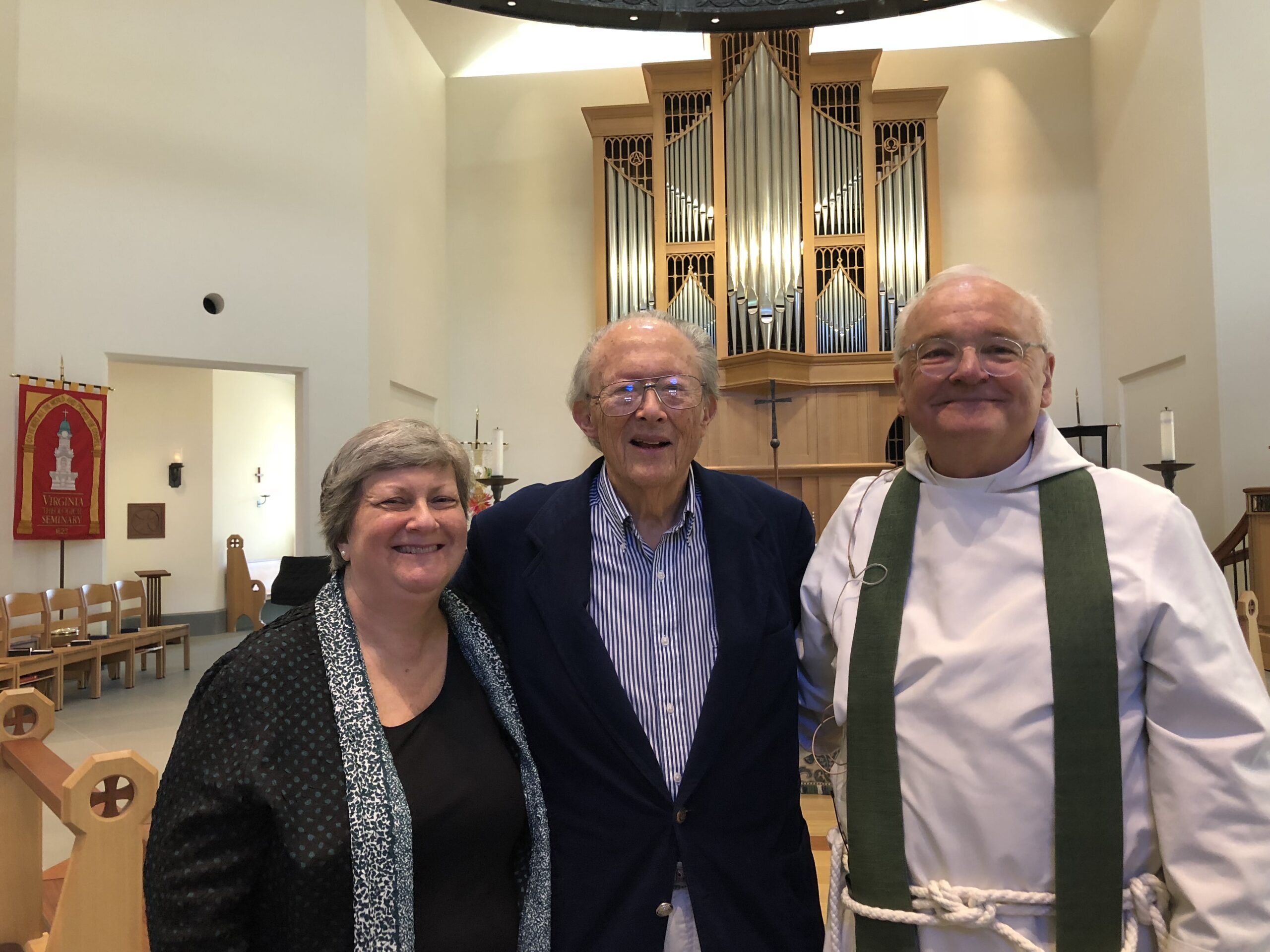
The Thomas Dix Bowers Preaching Fellowship Fund was established at Virginia Theological Seminary on May 6, 2008, by family and friends of the Rev. Dr. Thomas Dix Bowers, VTS ’56.
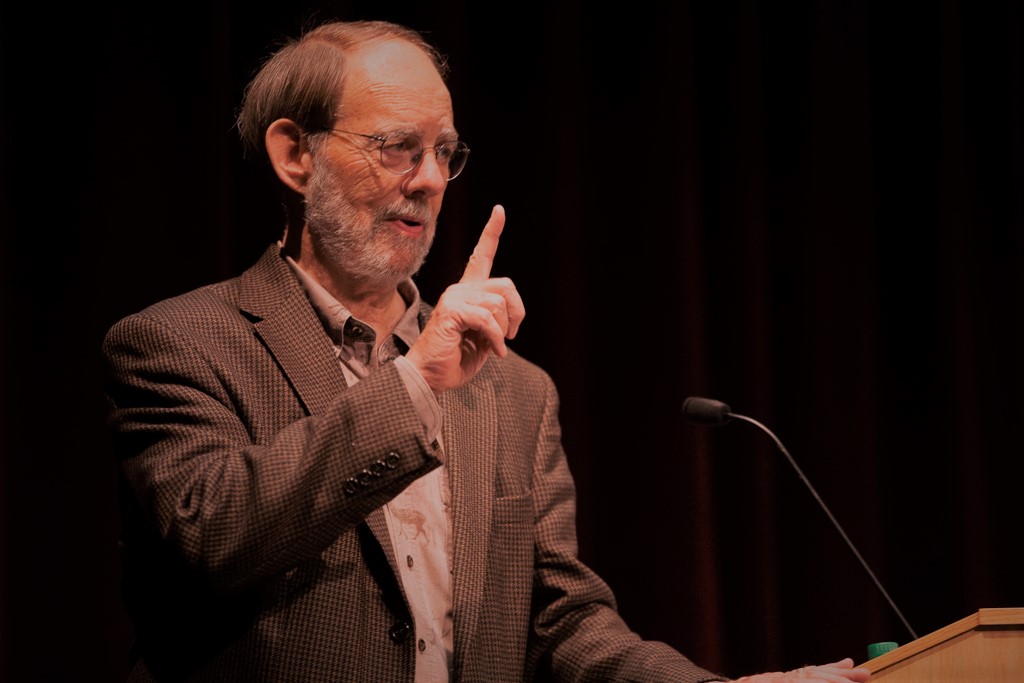
The Rev, Rode Molla, Ph.D., Assistant Professor, and the first Berryman Family Chair for Children’s Spirituality and Nurture at Virginia Theological Seminary, reflects on the legacy of the Rev. Jerome Berryman, D.Min.
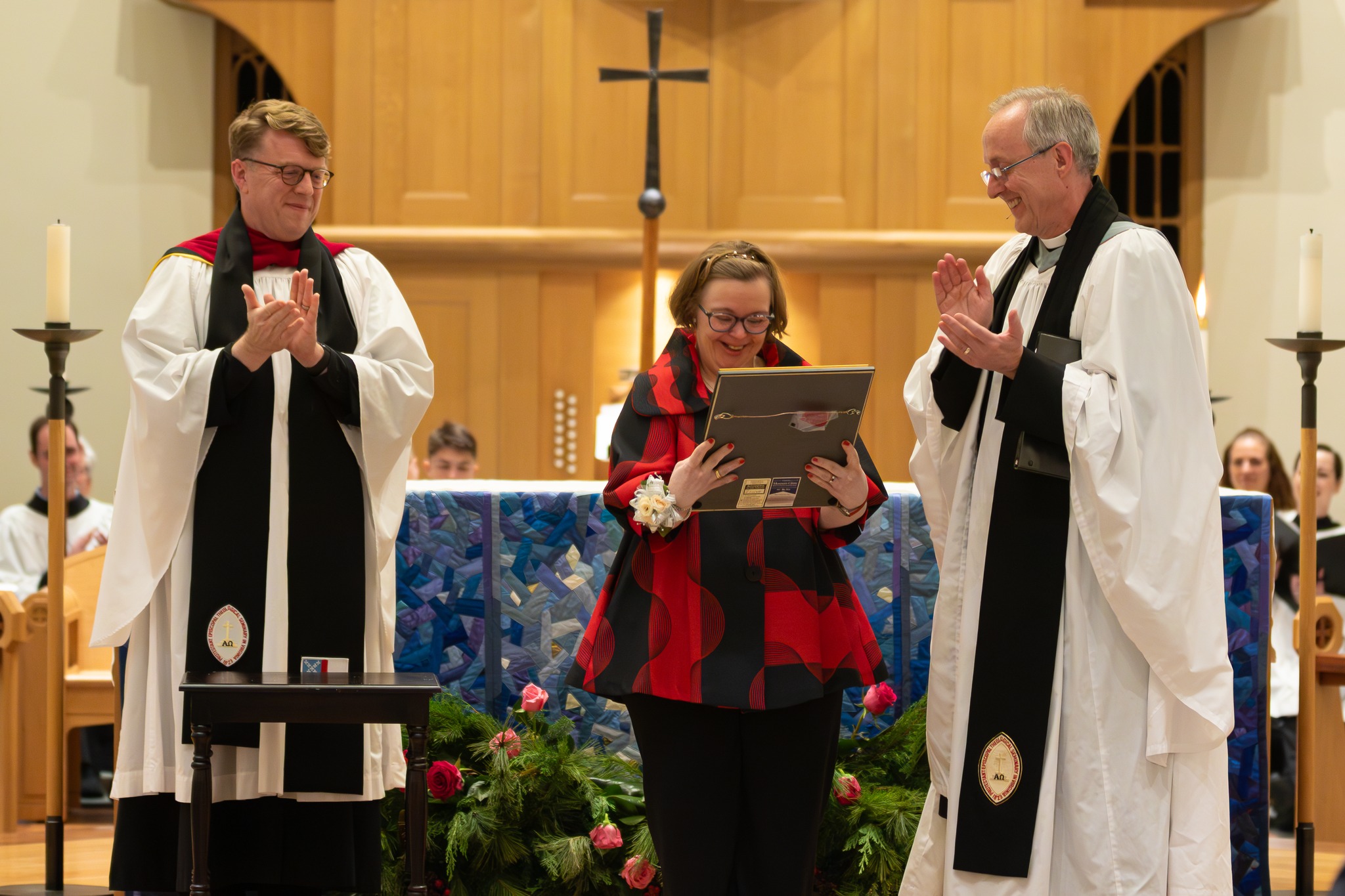
Virginia Theological Seminary was honored to confer the Dean’s Cross for Servant Leadership on Ellen Wofford Hawkins in recognition of her deep faith and ability to bring sunshine into the lives of others.